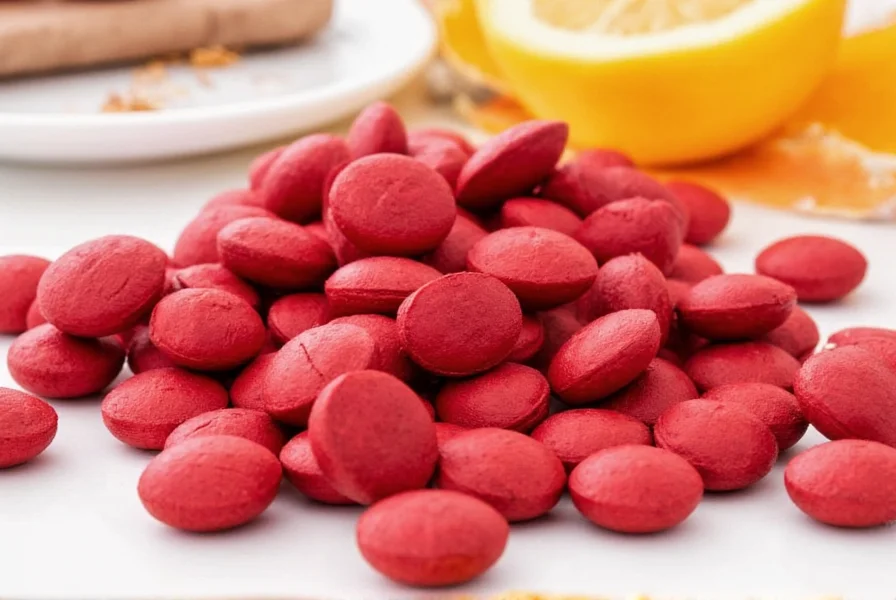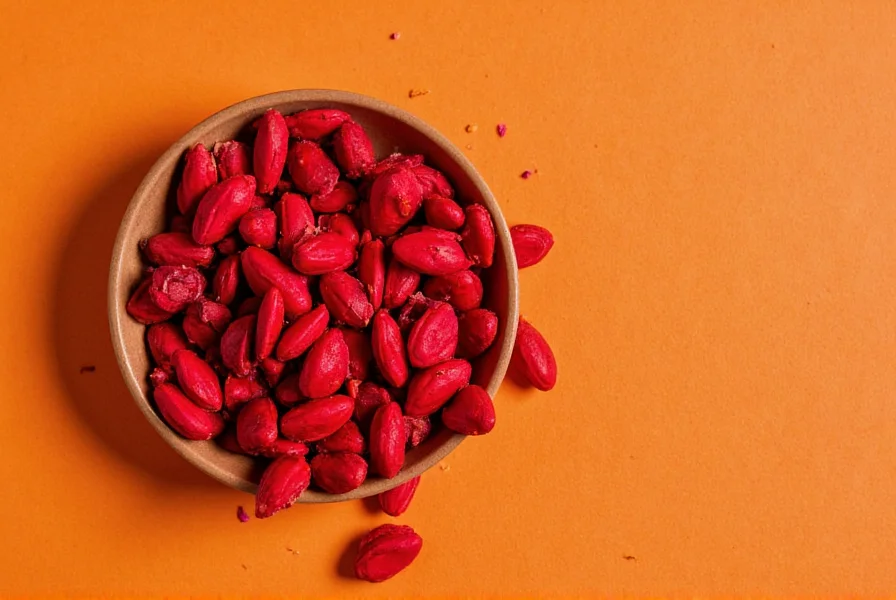Saffron tablets have gained significant attention in the supplement market as researchers continue to investigate the therapeutic potential of this ancient spice. Unlike culinary saffron, which requires harvesting thousands of delicate stigmas to produce just one gram, standardized saffron tablets provide consistent concentrations of bioactive compounds in a convenient format. This makes them particularly valuable for individuals seeking evidence-based natural approaches to wellness without the impracticality and expense of using saffron in its traditional thread form.
Understanding Saffron: From Ancient Spice to Modern Supplement
The Crocus sativus flower, commonly known as saffron, has been used for millennia across Mediterranean and Asian cultures not only as a prized spice but also in traditional medicine systems. Each saffron stigma contains over 150 volatile compounds, with crocin (responsible for its red color) and safranal (providing its distinctive aroma) being the most studied for their potential health benefits. Modern extraction techniques allow manufacturers to concentrate these compounds into tablet form, creating supplements with standardized potency that traditional saffron simply cannot provide.
Research Evolution Timeline
Scientific validation of saffron's therapeutic properties has progressed through distinct phases:
- 2005: First randomized controlled trial demonstrated saffron's antidepressant effects comparable to imipramine (Akhondzadeh et al., Journal of Ethnopharmacology).
- 2010: Clinical trial showed saffron's efficacy matched fluoxetine for mild-to-moderate depression with superior tolerability (Akhondzadeh et al., Progress in Neuro-Psychopharmacology).
- 2020: Comprehensive meta-analysis established evidence thresholds for clinical application (Hausenblas et al., Phytotherapy Research).

Saffron Tablets vs. Other Supplement Forms
When considering saffron supplementation, consumers face several format options:
| Supplement Form | Standardization | Dosing Precision | Cost Efficiency | Shelf Stability |
|---|---|---|---|---|
| Saffron tablets | High (standardized extracts) | Excellent | Best value | Excellent |
| Saffron powder | Variable | Moderate | Moderate | Poor (light sensitive) |
| Raw saffron threads | None | Poor | Very expensive | Moderate |
| Liquid extracts | Moderate | Good | Moderate | Fair |
Tablets provide the most reliable method for consistent dosing of saffron's active compounds. Research on saffron's health benefits typically uses standardized extracts containing 2-3% safranal and 1.8-2% crocin, which would require consuming impractical amounts of raw saffron to achieve equivalent effects.
Evidence-Based Health Benefits of Saffron Tablets
Scientific research on saffron tablets has primarily focused on several key areas, with the strongest evidence supporting their role in mood regulation:
Mood Support and Depression Management
Multiple clinical trials demonstrate saffron tablets' potential for supporting emotional wellness. A comprehensive 2020 meta-analysis published in Phytotherapy Research reviewed 10 studies involving 791 participants and concluded that saffron supplementation (typically 30mg daily of standardized extract) showed significant improvement in depressive symptoms compared to placebo. Notably, some studies found saffron tablets performed comparably to conventional antidepressants like fluoxetine, but with fewer reported side effects. Patient-reported outcomes indicate high treatment acceptability, with clinical trials showing 71.4% of participants experiencing "much" or "very much" improvement on symptom scales after 8 weeks (Lopresti et al., Human Psychopharmacology, 2014).
Eye Health Protection
Emerging research suggests saffron tablets may benefit retinal health. Studies indicate that daily supplementation with 20-30mg of standardized saffron extract can improve retinal function in individuals with age-related macular degeneration (AMD) and other retinal disorders. The antioxidant properties of crocin appear to protect photoreceptor cells from oxidative damage, potentially slowing disease progression.
Additional Research Areas
While evidence is less robust, preliminary studies suggest saffron tablets may offer benefits for:
- PMS symptom relief - Research shows potential reduction in physical and emotional premenstrual symptoms
- Appetite regulation - Some studies indicate saffron may reduce snacking frequency and cravings
- Cognitive support - Early research suggests possible neuroprotective effects
It's crucial to note that while these findings are promising, more large-scale, long-term studies are needed to confirm many of these potential benefits of saffron tablets.
How Saffron Tablets Work: The Science Behind the Benefits
The therapeutic effects of saffron tablets stem primarily from two key compounds:
- Crocin - A carotenoid responsible for saffron's red color, with potent antioxidant and anti-inflammatory properties that may protect brain cells and improve neurotransmitter function
- Safranal - The compound providing saffron's distinctive aroma, which appears to modulate serotonin and dopamine pathways in the brain
These compounds work synergistically to influence multiple biological pathways. Research suggests saffron tablets may increase serotonin availability in the brain while reducing inflammation and oxidative stress - factors increasingly recognized as contributors to mood disorders. Unlike many pharmaceutical antidepressants that target single pathways, saffron's multi-target approach may explain its favorable side effect profile.
Proper Dosage and Usage Guidelines
Based on current research, effective dosing for saffron tablets typically falls within these parameters:
- Mood support: 15-30mg daily of standardized extract (providing approximately 0.3-0.6mg safranal and 0.5-1mg crocin)
- Eye health: 20-30mg daily of standardized extract
- Duration: Most studies showing benefits used supplementation for 6-12 weeks
For optimal absorption, take saffron tablets with food. Many users report noticing initial effects within 2-4 weeks, though maximum benefits may take 8-12 weeks. Unlike raw saffron, which requires careful measurement and can vary significantly in potency, quality saffron tablets provide consistent dosing that aligns with research protocols.
Safety Profile and Potential Side Effects
Saffron tablets are generally well-tolerated at recommended doses, but users should be aware of potential considerations:
Common Mild Side Effects
- Dry mouth
- Mild appetite changes
- Nausea (especially when taken on empty stomach)
- Headache
Serious Safety Considerations
While rare at standard supplement doses, high amounts of saffron can be toxic. Consuming more than 5 grams of raw saffron can be dangerous, though this is virtually impossible with properly dosed saffron tablets. However, certain populations should exercise caution:
- Pregnant women should avoid saffron supplements as high doses may stimulate uterine contractions
- Individuals taking SSRIs or other antidepressants should consult a healthcare provider due to potential interactions
- People with bipolar disorder should use saffron tablets under medical supervision
- Those scheduled for surgery should discontinue use at least two weeks beforehand due to potential blood-thinning effects
Contextual Application: Scenarios and Limitations
Clinical evidence reveals specific contexts where saffron tablets deliver optimal benefits and clear boundaries where they should be avoided:
- Ideal application: Mild-to-moderate depression as adjunct therapy (per NIH clinical trial guidelines), age-related macular degeneration under ophthalmological monitoring, and PMS management where hormonal therapies are contraindicated
- Documented limitations: Ineffective for severe depression (HAM-D scores >24), contraindicated during pregnancy (EMA herbal monograph Section 4.3), and incompatible with MAO inhibitors
- Practical constraints: Requires 6-8 weeks minimum for measurable effects; benefits plateau at 30mg daily; ineffective with non-standardized extracts (<2% crocin)
These context-specific parameters help users align expectations with evidence-based applications while avoiding inappropriate use cases.
Quality Considerations for Saffron Tablets
Not all saffron tablets deliver equal value or effectiveness. When evaluating products, consider these quality markers:
- Standardization - Look for products specifying crocin and safranal content (typically 2-3% safranal, 1.8-2% crocin)
- Third-party testing - Reputable brands provide certificates of analysis verifying purity and potency
- Adulteration risks - Some products may contain fillers or substitutes like safflower or turmeric
- Extraction method - Water-based extractions preserve more active compounds than alcohol-based methods
Research indicates significant quality variation among saffron supplements. A 2022 analysis published in Journal of Agricultural and Food Chemistry found that nearly 30% of tested saffron supplements contained less than 50% of the labeled crocin content. This underscores the importance of selecting products from reputable manufacturers with transparent quality control practices.

Realistic Expectations for Saffron Tablet Users
While research on saffron tablets is promising, maintaining realistic expectations is crucial. These supplements work gradually and subtly, not as immediate solutions. They're best viewed as part of a comprehensive approach to wellness that includes proper nutrition, regular exercise, adequate sleep, and stress management techniques.
Individual responses vary significantly based on genetics, existing health conditions, and lifestyle factors. Some people may notice benefits within weeks, while others might require several months of consistent use. Importantly, saffron tablets are not a replacement for professional medical treatment for clinical depression or other serious health conditions.
Integrating Saffron Tablets into Your Wellness Routine
For those considering saffron tablets, here's a practical approach:
- Consult with your healthcare provider, especially if you have existing health conditions or take medications
- Select a high-quality product with verified standardization and third-party testing
- Start with a lower dose (15mg daily) to assess tolerance
- Maintain consistent daily use for at least 8 weeks before evaluating effectiveness
- Track your experience in a journal to identify subtle changes in mood or other symptoms
- Reassess with your healthcare provider after 3 months of use
Remember that supplements work best as part of a holistic health strategy. Combining saffron tablets with other evidence-based approaches like cognitive behavioral therapy techniques, regular physical activity, and a balanced diet creates the strongest foundation for wellness.
Frequently Asked Questions About Saffron Tablets
How long does it take for saffron tablets to work for mood support?
Most clinical studies show initial mood improvements within 2-4 weeks of consistent daily use at appropriate doses (15-30mg of standardized extract), with maximum benefits typically observed after 8-12 weeks. Individual responses vary based on factors like baseline mood, dosage, and overall health status. Unlike pharmaceutical antidepressants that may work more quickly, saffron tablets produce gradual, subtle improvements that build over time.
Can saffron tablets interact with antidepressant medications?
Yes, saffron tablets may interact with certain antidepressants, particularly SSRIs (like fluoxetine or sertraline) and MAOIs, potentially increasing the risk of serotonin syndrome. While some studies have safely combined saffron with antidepressants under medical supervision, you should never combine these without consulting your healthcare provider. The active compounds in saffron affect similar neurotransmitter pathways as many antidepressant medications, creating potential for additive effects.
What's the difference between saffron tablets and raw saffron for health benefits?
Raw saffron requires consuming impractical amounts (several grams daily) to achieve the therapeutic doses used in research, making it cost-prohibitive and potentially unsafe. Saffron tablets contain concentrated, standardized extracts providing consistent amounts of active compounds (crocin and safranal) at research-backed doses (typically 15-30mg daily). This standardization ensures reliable potency that varies significantly in raw saffron due to growing conditions, processing methods, and potential adulteration.
Are there specific quality markers to look for in saffron tablets?
Yes, look for saffron tablets that specify standardized content of both crocin (typically 1.8-2%) and safranal (2-3%), provide third-party testing documentation, use water-based extraction methods, and come from reputable manufacturers with transparent sourcing. Avoid products that don't disclose their standardization levels or lack independent quality verification. The highest quality saffron tablets will often include chromatography reports verifying the specific compound concentrations.
Can I take saffron tablets long-term?
Current research suggests saffron tablets are safe for long-term use at standard doses (up to 30mg daily of standardized extract) for periods of 6-12 months. However, limited data exists on safety beyond one year of continuous use. Most experts recommend taking periodic breaks (such as two weeks off after six months of use) and regular check-ins with a healthcare provider when using saffron tablets long-term. As with any supplement, ongoing monitoring of your response and potential side effects is important.











 浙公网安备
33010002000092号
浙公网安备
33010002000092号 浙B2-20120091-4
浙B2-20120091-4